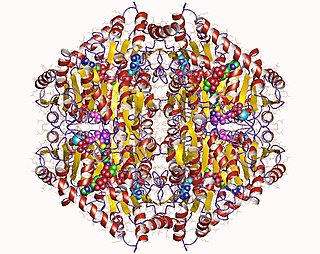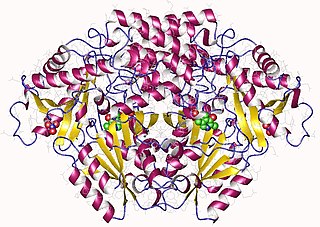| hydroxyglutamate decarboxylase | |||||||||
|---|---|---|---|---|---|---|---|---|---|
| Identifiers | |||||||||
| EC no. | 4.1.1.16 | ||||||||
| CAS no. | 9024-59-3 | ||||||||
| Databases | |||||||||
| IntEnz | IntEnz view | ||||||||
| BRENDA | BRENDA entry | ||||||||
| ExPASy | NiceZyme view | ||||||||
| KEGG | KEGG entry | ||||||||
| MetaCyc | metabolic pathway | ||||||||
| PRIAM | profile | ||||||||
| PDB structures | RCSB PDB PDBe PDBsum | ||||||||
| Gene Ontology | AmiGO / QuickGO | ||||||||
| |||||||||
The enzyme hydroxyglutamate decarboxylase (EC 4.1.1.16) catalyzes the chemical reaction
- 3-hydroxy-L-glutamate 4-amino-3-hydroxybutanoate + CO2
Hence, this enzyme has one substrate, 3-hydroxy-L-glutamate, and two products, 4-amino-3-hydroxybutanoate and CO2.
This enzyme belongs to the family of lyases, specifically the carboxy-lyases, which cleave carbon-carbon bonds. The systematic name of this enzyme class is 3-hydroxy-L-glutamate 1-carboxy-lyase (4-amino-3-hydroxybutanoate-forming). This enzyme is also called 3-hydroxy-L-glutamate 1-carboxy-lyase. It employs one cofactor, pyridoxal phosphate.







